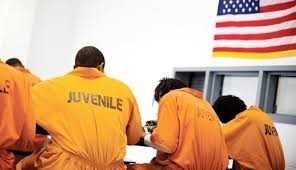All adults recognize this truth; children’s minds are different from adults. Unlike adults, youth brains develop with a structural imbalance that effectively promotes poor decision making; the area that matures reckless behavior matures sooner than the area that regulates behavior. Simply put, the youth brain is literally hardwired to promote poor decision making.
For the first time 2012 landmark case Miller V. Alabama, the United States Supreme Court, acknowledges the difference. Miller deals with the sentencing of children to mandatory life in prison without the possibility of parole. Fourteen states have no minimum age for trying children as adults. Children as young as 8 years old have been prosecuted while some states set the minimum age at 10,12 or 13.
The Court reasoned that children’s lack of maturity, have a underdeveloped sense of responsibility leading to recklessness, they are impulsive, heedless risk-takers, and susceptible to negative external influences and pressure from peers. Yet the Court went on to say “a child’s character is not well informed and their traits are less fixed and their actions are less likely to be evidence if irretrievable depravity.”

For these very reasons, arming teens with the tools they need to think past their natural impulses is so critically important. Helping young people manage their emotions along with other initiatives like increasing literacy and involvement in self- esteem increasing activities can be the very thing that tips the scales. These traits can decrease a child’s likelihood of becoming a prisoner and increase the child’s odds of becoming a success.
Below are a few concepts to share with young people to help with emotional management and better decision making.
Know Thy Self: Encouraging a young person to know themselves is very important. In the same way you know gives you an allergic reaction a young person should know what triggers emotions of anger or rage. This will allow them to navigate life’s obstacles in a way that doesn’t put their freedom in jeopardy.
Stop overestimating short-term payoffs and underplaying the long- term consequences: There is a rule of nature, you reap what you sow; there is no exception to this rule. Why not give blessings so that you can get blessings?
Stay focused on your goal: Kids needs the skills to strengthen their ability to peep what is really going on even through all the noise in their lives. A lot of young people spend their time regretting the past and complaining about their present situation.
Last but not least, it’s important to remember that, Failure is a learning opportunity!
About The Author
Jabar, writer and youth advocate from St. Louis Missouri is dedicated to promoting life changing literature for youth. The author behind a series of positive YA fiction books for troubled teens and at-risk youth, all books available on Amazon.com.

























Comments